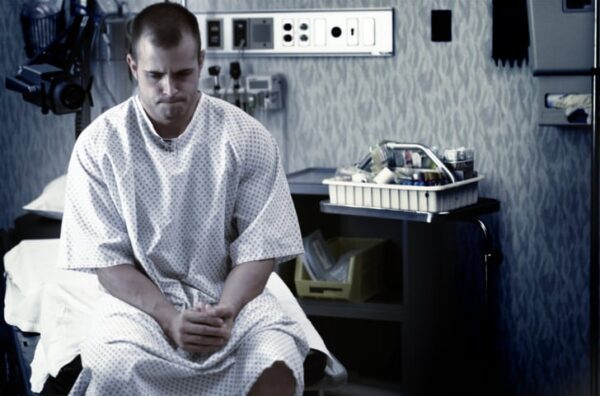
Contacting a Maine car accident lawyer after an accident can help you understand your rights and legal options to ensure that the compensation you receive is not simply adequate but what you deserve. The extent of your injuries and how they affect your quality of life should not be left to the insurance company, especially if your injuries resulted from someone else’s negligence. Before you sign any agreement, protect yourself by speaking with an experienced Maine car accident lawyer at Hardy, Wolf & Downing.
Types of Injuries
Car accident injuries can vary greatly, depending on factors such as your location in the car, the angle of the impact, the speed, and the size of the car. Major accidents can cause debilitating injuries and disfigurement. Yet, even seemingly minor accidents can result in a serious injury that doesn’t manifest until a day or two later. Thus, it’s essential to consult a medical professional to diagnose and treat any potential injuries after a crash. Though there are hundreds of types of injuries you may suffer in a car accident, types of injuries are generally categorized under the following:
Orthopedic Injuries
The orthopedic system is the musculoskeletal system that encompasses the body—your bones, cartilage, joints, ligaments, muscles, and tendons. Car accidents can lead to various orthopedic injuries that could affect the spinal cord or cause muscle strains or sprains, as well as fractures, ligament tears, tendon tears, and joint dislocations. Nonetheless, common injuries after a collision include a broken wrist or arm and rib fracture, a broken hip or ankle, femur fractures, fibula or tibia fractures, skull and facial fractures, and torn ACL or MCL and muscles.
Soft Tissue Injuries
Soft tissue injuries are specific orthopedic injuries to muscles, tendons, and ligaments, resulting in contusions or bruises, muscle or tendon strains, and ligament sprains. Whiplash is the most common soft tissue injury resulting from car accidents, characterized as a cervical sprain or strain. Soft tissue injuries may not be immediately apparent or even appear on X-rays, making professional diagnosis crucial. Only a specialist can fully diagnose and treat soft tissue damage caused by car accidents. Treatment can range from medication for minor injuries to surgery for severe ones. It’s strongly advised to seek immediate medical attention following a car accident to identify and manage soft tissue damage. Otherwise, untreated injuries could worsen, potentially leading to chronic issues.
Nerve Damage and Neurological Disorders
Because nerves are distributed throughout the body, cuts or severe trauma from a car accident can cause temporary or permanent nerve damage and neurological disorders. Such damage may result in numbness, muscle twitching, or weakness. Difficulty speaking, tingling sensation in extremities, abnormal pain and sensitivity, dizziness or lightheadedness, muscle atrophy and loss of strength, and even paralysis are common types of nerve damage that occur after a car accident.
Internal Injuries
In a car accident, the force of the collision can lead to severe internal injuries, necessitating immediate medical treatment. Internal injuries involve harm to organs located in the abdominal, cranial, and thoracic cavities. In other words, the stomach, head, lungs, ribs, and major blood vessels. Typical internal injuries resulting from car accidents include broken ribs, which can damage adjacent blood vessels or puncture the lungs, causing them to collapse. Internal bleeding can occur from a ruptured spleen, organ damage or damaged blood vessels that are unable to coagulate and repair themselves. The force of impact could also lead to an abdominal aortic aneurysm.
Head Injuries and Head Trauma
Head trauma refers to any damage to the brain, skull, or scalp caused by head injury. Head injuries from a car accident can range from mild to severe, causing concussions or even traumatic brain injury. These injuries are categorized based on the type, severity, and location of the injury. Injuries to the skull may be open, such as an actual fracture of the skull, or closed, such as the force of a concussion and the head being thrown around sideways or snapped back and forth. Headache, nausea, dizziness, ringing in the ear, and mild blurring of vision are common symptoms of mild head injuries. On the other hand, loss of consciousness, bleeding from the open wound in the scalp, vomiting, lack of muscle control or convulsions are a sure sign of severe head injuries.
Understand Your Legal Rights
The aftermath of a car accident can be overwhelming. If you’ve been in a serious accident, as medical bills and other costs pile up, often focusing on recovery can become challenging, particularly if work absence is injury-related. During this time, the situation can significantly impact your well-being.
The insurance company knows that, as you heal from your injuries, when you only want to put the accident behind you and get back to “normal,” you’re more vulnerable, if not likely, to accept a low settlement. Remember that insurance companies make much more profit when settling claims before those injured understand their legal rights.
To fully understand your rights after a car accident, before you accept any offer from the insurance company, contact an experienced car accident lawyer at Hardy, Wolf & Downing to arrange a free meeting to discuss your legal options. Speaking with one of our experts can make a difference in your life. We’re here to help you and ensure you get the compensation you deserve.

